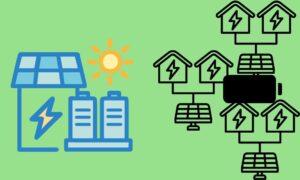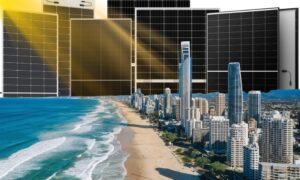U.S. researchers are developing a prototype weather forecasting system which would predict solar radiation levels up to 36 hours into the future, allowing solar energy providers and utilities to accurately adjust to changing conditions.
The National Centre for Atmospheric Research (NCAR) will utilise a $4.1 million U.S. Department of Energy (DOE) grant and throw its resources and expertise at tackling the issue of how cloud cover and atmospheric particles stop energy from the sun reaching solar panels mounted at large-scale solar facilities.
The NCAR team will use laser-guided technology, artificial intelligence software and advanced computer modelling to create a detailed map of the atmosphere to provide 15-minute updates on solar levels.
“It’s critical for utility managers to know how much sunlight will be reaching solar energy plants in order to have confidence that they can supply sufficient power when their customers need it,” says Sue Ellen Haupt, director of NCAR’s Weather Systems and Assessment Program.
“These detailed cloud and irradiance forecasts are a vital step in using more energy from the sun.”
According to the Centre, renewable energy targets across many U.S. states have forced a switch away from coal and gas power, increasing reliance on more intermittent forms of electricity, such as solar and wind. Utilities able to predict cloudy days can therefore avoid having to buy more expensive power from high-carbon suppliers, saving ratepayers money.
NCAR worked with wind energy supplier Xcel Energy to design a wind forecasting system which saved customers an estimated $6 million.
“Improving forecasts for renewable energy from the Sun produces a major return on investment for society,” says Thomas Bogdan, president of the University Corporation for Atmospheric Research, which manages NCAR on behalf of the National Science Foundation. “By helping utilities produce energy more efficiently from the Sun, we can make this market more cost competitive.”
Source














































